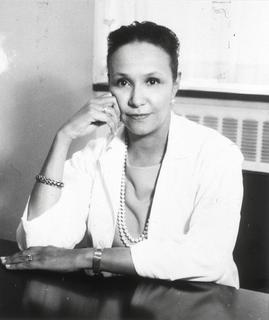Black History Month celebrates Black health and wellness
With the continued pressures of the COVID-19 pandemic, Black History Month this year focuses on accomplishments of African-Americans in the medical field and racial inequity in healthcare.
February 28, 2022
The Association for the Study of African American Life and History (ASALH,) founded by historian Carter G. Woodson, selects a theme every year to focus activism and awareness.
Woodson established “Negro History Week” in 1926 during the second week of February to coincide with the birthdays of Abraham Lincoln, emancipator of enslaved people in the south, and famous abolitionist Fredrick Douglass. During the civil rights movement of the 1960s, the week expanded to the entire month on college campuses until President Gerald Ford officially recognized February as “Black History Month” in 1976.
This year’s theme is “Black health and wellness” because of the racial disparities in American health care highlighted by the ongoing COVID-19 pandemic.
“The theme addresses the long history of how African Americans have dealt with their exclusion from the nation’s hospitals and clinics,” ASALH president W. Marvin Dulaney said. “Some of the nation’s most important medical and scientific innovations were developed because African Americans in slavery and freedom were used literally as guinea pigs to help to develop the field of gynecology, to research cancer and polio, and the spread of syphillis.”
According to a study by the National Academy of Medicine, systemic racism “manifested in lower-quality health care, residential segregation and lack of affordable housing, or the accumulation of daily stressors resulting from micro-level and macro-level aggressions, unconscious or conscious biases, and discrimination” caused the general trend that Black people die sooner and experience more health problems even compared with variables of insurance, status, income, and severity of conditions.
When analyzing 400 hospitals in the nations, Black patients received cheaper or older treatments and were discharged much earlier than their white counterparts, often at inappropriate times. Black women are less likely to receive mastectomies for breast cancer. Black people are more likely to receive amputations.
“The ‘uncomfortable reality’ is that some people in the United States were more likely to die from cancer, heart disease, and diabetes simply because of their race or ethnicity, not just because they lack access to health care,” a report from the American Bar Association said.
On the other hand, the theme also celebrates the medical and scientific contributions made by African Americans.
Marilyn Hughes Gaston, M.D., published her groundbreaking study on sickle cell disease while making healthcare more accessible to underserved communities.
Louis T. Wright, M.D. discovered the first vaccine treatment for soldiers against smallpox in 1917.
The contributions of Black scientists and medical professionals have continuously been suppressed or left out of history books, but the theme hopes to change this former trend.
“We are doing more to move forward holistically for the betterment of ourselves, our bodies, our relationships, our communities, and our planet,” Dulaney said. “We are determined to create a platform that shines a light on the multiple facets of Black health and wellness through education and activism. There is much to uncover, amplify, question, and correct.”



